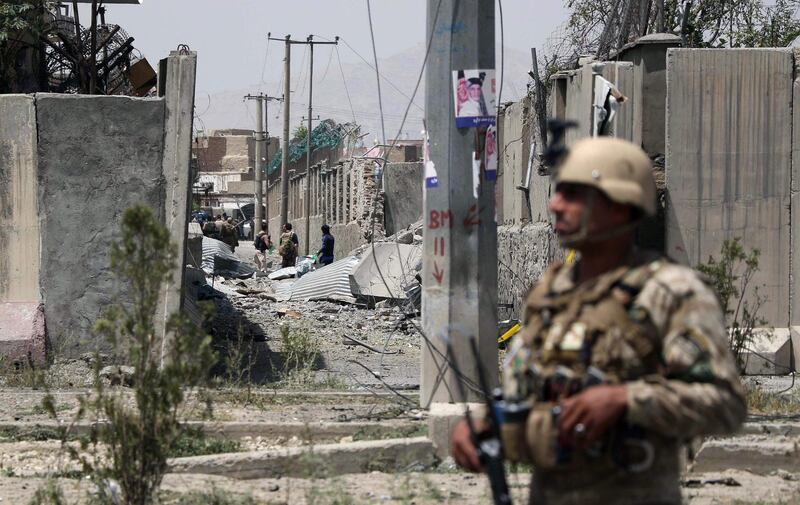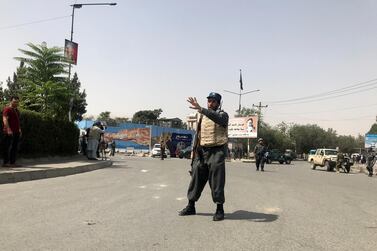The worsening conflict between India and Pakistan after India’s decision to revoke the special status of Kashmir threatens to cast a dark shadow on the future of Taliban peace talks in Afghanistan.
On Monday, India announced the decision to revoke Article 370, which granted special status to the semi-autonomous state of Jammu and Kashmir, meaning it will be controlled by the Indian central government.
The move strains already fragile relations between India and Pakistan, as both countries lay claim to the territory, and Pakistani politicians have condemned the action and warned of consequences.
“The Afghan peace process is going through a critical stage,” Pakistan’s Foreign Minister, Shah Mehmood Qureshi, said on Saturday.
"US special representative Zalmay Khalilzad has reached Doha after a successful visit to Islamabad. The action by the Indian army is a distraction. These spoilers can impact peace.”
Analysts worry that Pakistan’s proximity to the Taliban could prompt it to use the Afghan peace talks as leverage for a favourable resolution in Kashmir.
“Pakistan knows that they are much more important to the US than India is,” said Kabir Taneja, of the Observer Research Foundation.
Mr Taneja was referring to Pakistan’s role in US President Donald Trump’s promise to withdraw troops from Afghanistan before the 2020 election.
“Trump’s withdrawal from Afghanistan is going to be a major selling point," he said.
"A withdrawal or deal for the US is aimed at pleasing a domestic audience and South Asian stability is not a core aim. To achieve this, Pakistan is a bigger player than India.”
Analyst Omar Sadr, in Afghanistan, said that Pakistani Prime Minister Imran Khan’s successful recent trip to the US had emboldened him.
“During Mr Khan’s visit, the US agreed to support Pakistan on the Kashmir issue and relieve some of the pressure from terrorism,” Mr Sadr said.
“And now Pakistan wants to trade off the Afghan peace process and the Kashmir issue. It is an old game in the region.”
He said that India’s move in Kashmir could be a reaction to neglect in the continuing talks.
“One of the scenarios could be that the action is related to the strategic neglect that India suffered in the Afghanistan peace process," Mr Sadr said.
"It is possible that the move was to let the US realise that they can also exert pressure.
“The second possibility is that India sees this scenario as similar to that in the late 1990s, when the [militant] groups in Kabul were powerful and allied with Pakistan, which gave them the manpower to fight on their eastern border with India.”
Michael Kugelman, deputy director of the Asia programme at the Wilson Centre think tank in Washington, agreed that with the US and Taliban reaching a rapid conclusion to their talks, the Indian government could be concerned about a strong Taliban role in Afghanistan's government.
“That would be an ideal endgame for Islamabad and a nightmare outcome for New Delhi," Mr Kugelman said.
"India’s muscular move with Kashmir can be seen as an attempt to push back against Pakistan and reassert its regional clout."
The more the Afghan peace process progresses, the more India will increase its focus on Kashmir, he said.
“It will leverage Kashmir to counteract Pakistan’s strengthened hand in Afghanistan,” Mr Kugelman said.
None of these scenarios leaves much hope for Afghans or peace, especially with the Taliban’s rejection of presidential elections in the country. Their attacks are increasing and causing significant civilian casualties.
“The government of Afghanistan should be concerned, however, that they don’t have much of a say in the game since Americans are leading the talks,” Mr Sadr said.
An Afghan official said the government was working on a response to Mr Qureshi’s statement that Kashmir is just a distraction.
“As far as I know, they will say that the Kashmir issue is a dispute between Pakistan and India, and it doesn’t make any sense to link it with Afghan peace talks," he said.
“The issue has been running for decades between both countries and has nothing to do with Afghanistan."






